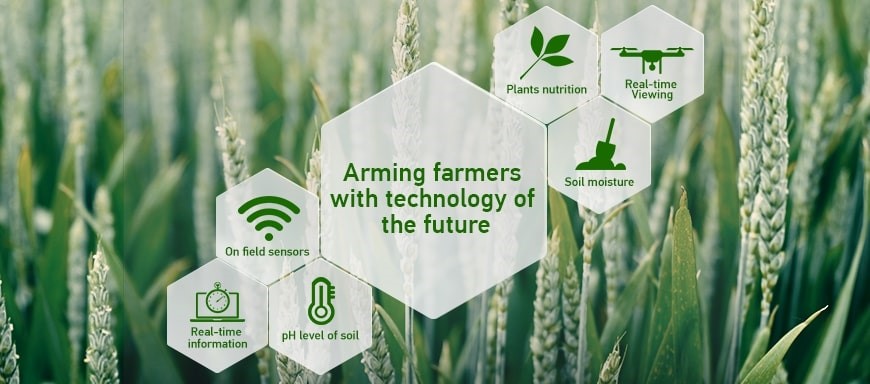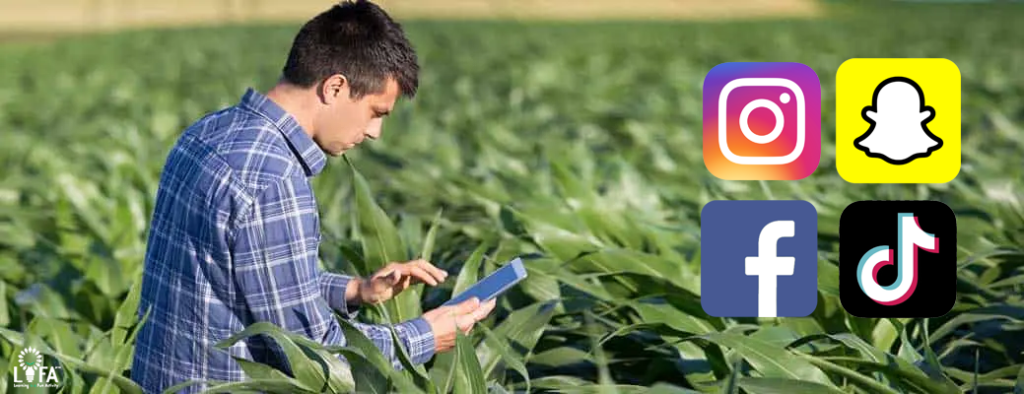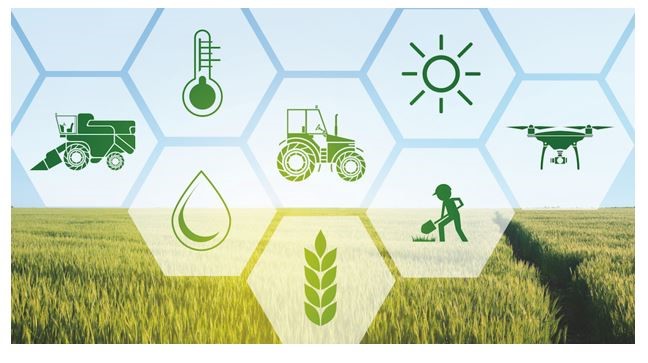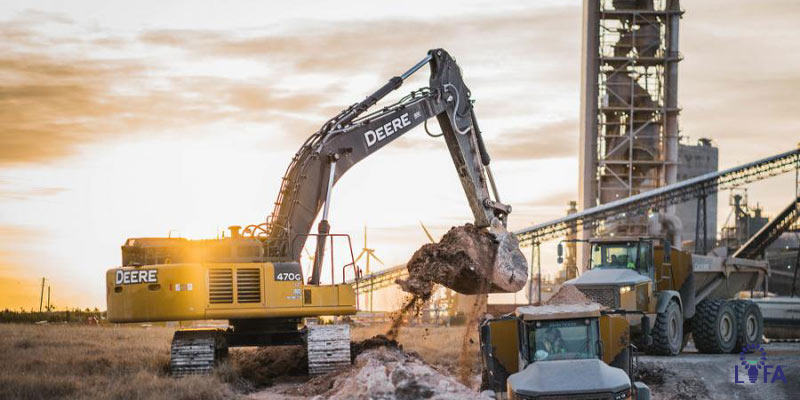
Special Social Network of Electronic Industry
February 27, 2022Special Social Networks of the Agricultural Industry
Special Social Networks in the Agricultural Industry is a favorite topic in the industry’s progress. Globalization is an inevitable process that began in the 19th and 20th centuries and has evolved along with ups and downs that have never stopped except during World Wars I and II. Along the way, this process was initially successful in the economic dimension but gradually expanded to other dimensions.
The impact of some social networks on the GD Prediction
In a recent study published in the International Journal of Economics, Business, and Management in 2020, the economic impacts of social networks of the Agricultural Industry such as Facebook, YouTube, Pinterest, and Twitter in 198 countries between 2009 and 2017 were examined.
Also, this study’s results showed social media’s impact on GDP growth. However, what has been emphasized in this study is that the positive economic effects of social networking services and online media are much stronger than their negative impacts.

This article explains the role of social networks in the agricultural industry.
As communication patterns increasingly transcend national boundaries, internet connection statistics, and users are growing exponentially. The rapid dissemination of the internet, satellite, and digital technologies has enabled simultaneous communication among large parts of the world. As a result, many national information controls have been affected. Today, the role of the media and social networks in the Agricultural Industry is undeniable.
Social networks are generally individual or organizational groups that connect through one or more farmers and portray convergent networks’ effective functioning in a complex information society context. Their increasing success and popularity are due to their social type and use.
Why is it important to know about your social networks?
The social network of individuals is an informal institution that affects economic decisions and performances. But the neoclassical paradigm governing economics has neglected the role of social networking services among agricultural establishments because of its slight view. In contrast, social networks of the Agricultural Industry can play a vital role in agriculture and social phenomenon. In recent decades, due to various economic, social, and technological changes such as increasing urbanization, changes in consumption patterns, and the amount of consumerism and growing influence and utilization of new technologies, human life has faced new lifestyle problems.

Traditional marketing methods in social networks
lack of sustainable water resources, and climate change. This is the moment we determine the necessity of a particular social network in the agricultural industry. Lack of attention to new marketing and direct and immediacy sales of farm products and food products has reduced the profitability of agricultural and food products. This has caused farmers and food producers to lose their motivation for production.
Producers are forced to engage in traditional marketing, the same dealers, to avoid potential losses of products. In this method, the farmer and producer have no choice but to sell their products to speculators for a small price and to be persuaded to make a small profit.
Coronavirus outbreak pushes away traditional market.
Before the Corona crisis, traditional trade and marketing responded to the needs of farmers and producers. But in the coronavirus pandemic crisis, the conventional trading system showed inefficiency. The numerous periods of quarantine and the sensitivities caused by the coronavirus outbreak caused people’s tendency to take advantage of particular social networks.
Special Social Networks of the Agricultural Industry
Agriculture has long been considered a strategic industry in human life. Food supplies are an essential factor for the growth of every civilization. Today, with the expansion of science and the industrialization of life, people have turned to new ways of communication and interaction. Virtual networks have also created the opportunity to form new communities due to their interactive and conversational atmosphere. In the meantime, by pushing the type of agriculture from traditional to mechanized, communication and social network appear to familiarize farmers with new cultivation methods.
Introduction of the most widely used:
The most widely used social media is virtual social networks; today, virtual socialism is essential in exchanging the most up-to-the-day information and news. Virtual social networking services cross geographical, cultural, and doctrinal boundaries to bring people together to get information, experiences, awareness, and the latest news about the agriculture industry.
Data and Method in social networks
These days, because traditional agriculture was taking place and farmers often had deficient education levels, the significant growth of agricultural production leading to the export of foods was not noticeable. Still, in social networking services, the speed of news and initiatives should be coordinated.
The results of the second hypothesis of the study also showed that according to public test results, 227 respondents stated that the use of social networks in the Agricultural Industry was effective in improving their performance, 143 people responded that the level of equality of their agricultural activities changes in the period before and after the use of social networks.
Let’s do something more about special social networks.
Statistics show that the issuance of a particular social network in 2020 in the field of sales of the agricultural industry was associated with significant growth. Due to the total results, 75 percent were for real people and 25 percent for legal entities, which means small businesses choosing social networks of the Agricultural Industry to get out of the problems caused by corona pandemic.

The advantages
One of the most effective and, at the same time, most straightforward ways to sell agricultural and food products directly on the web is to use online shopping platforms and social networking services. One of the main reasons for the fluctuations in the farming industry is the problems of the marketing and sales process of agricultural products that farmers face. With the institutionalization of e-commerce and the weakening of physical stores, online markets have grown, and a bright future has been established. Let’s take a look at the positive points.
The structures among the respondents in various study locales
Each provider within the network has expertise, role, and responsibility. the advantage is whether they know each other and how they can find and strengthen each other. “In some areas, we have inventoried the agricultural sector’s national, regional, and local range of psychosocial and social help. We see there are many initiatives. It is vast what has already been built up by volunteers and professionals. “The offer can be perfectly connected via social networking services, but that still has to be done and made region specific. Nevertheless, there are also many opportunities for improvement, in which connecting and collaborating will quickly contribute. Phase 1 of this research will run until 2019.
The goal:
The ultimate goal is to come up with conclusions and recommendations for those areas so that in the next phase of the project, a comprehensive, active, self-managing, and self-reliant network of initiatives and providers of psychosocial and social help and services can be realized. A network that is constantly attuned to demand. “One of the interviewees made the all-encompassing statement ‘Together you know everyone, and you know everything.'” With this, this person advocates making local connections and building a good network with other farmers in the agricultural sector.

Direct sales strategy for the agricultural industry and food products
Social networks can play a crucial role in enhancing the adaptive capacity of farming communities to climate change. Using a cross-sectional dataset of 450 farm households, this study examines social networks at the local level and their role in the adaptation process. It investigates the structural gaps in the current institutional support at the farm level.
Your need for social networks
You need to work in this area to register in social networks of the Agricultural Industry related to your type of activity and document products. Most social networking services facilitate your marketing, buying, and selling process with the available tools and communications. The presence of specialized platforms and social media is an excellent opportunity for farmers and local producers. These values have been adopted to expand businesses in a new style, to make more profits for farmers and food producers, and to boost the economy and circulate the production process of our world.
These articles are related to this concept:
Special Social Network of Construction Equipment Industry
Special Social Network of Academic Universities and Institutes





2 Comments
Do you have agricultural content on LiFA?
Yeah, maybe our user published such content. otherwise, you can publish too dear Mike.